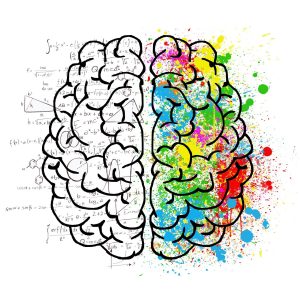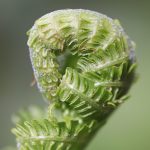The Neuro Arts: Unlocking Wellness Through Creativity
 Several weeks ago, I had the pleasure of presenting on the Neuro Arts for NEFESH, (HERE) building on my previous blog post about this fascinating field (HERE). Today, I’d like to delve deeper into the world of Neuro Arts and explore how these creative practices can enhance our well-being.
Several weeks ago, I had the pleasure of presenting on the Neuro Arts for NEFESH, (HERE) building on my previous blog post about this fascinating field (HERE). Today, I’d like to delve deeper into the world of Neuro Arts and explore how these creative practices can enhance our well-being.
The Neuro Arts encompass a wide range of creative activities that engage our brains in ways that promote emotional and physical health. From journaling and guided imagery to painting, drawing, music, and dance, these practices stimulate different areas of the brain, potentially reducing stress, improving cognitive function, and enhancing overall mental health.
Susan Magsamen, Executive Director of the International Arts + Mind Lab and Co-Director of the Neuroarts Blueprint, envisions a future where the arts are integral to mainstream medicine and public health. Imagine a world where doctors prescribe art therapy alongside traditional treatments! While we’re not quite there yet, we’re making exciting progress in understanding how the arts can impact our healing journey.
Let’s explore some Neuro Arts practices that you can easily integrate into your daily life:
- Journaling: Writing down your thoughts and feelings provides a safe space for self-expression and reflection. It can help process emotions, reduce anxiety, and clarify thinking, aiding in emotional regulation and resilience.
- Guided Imagery: This practice uses visualization techniques to evoke calming and positive images. By engaging your imagination, guided imagery can reduce stress, alleviate pain, and improve mood.
- Painting and Drawing: These visual arts offer a non-verbal outlet for expressing emotions. Engaging in these activities can lower stress levels, enhance creativity, and improve mental clarity.
- Dance and Movement: These therapies involve using the body to express and release emotions. They can boost physical fitness, enhance emotional well-being, and foster a sense of community and connection.
- Music: Whether you’re listening, singing, or playing an instrument, music has profound effects on the brain. It can elevate mood, reduce symptoms of depression and anxiety, and even improve memory and cognitive function. Singing, in particular, releases endorphins and oxytocin, promoting feelings of happiness and social bonding.
The benefits of Neuro Arts are backed by neuroscience research, which shows that creative activities can increase brain plasticity, improve neural connectivity, and release neurotransmitters associated with pleasure and well-being. Remarkably, studies have even demonstrated that attending artistic events, such as concerts, can significantly increase longevity!
During the pandemic, groups of people got together to perform in “virtual choirs.” Although the group experience is nothing like that of a live, in-person choir, the effect of all the voices together and the incredible synergy, gives chills to the listener. CLICK HERE to enjoy, “Sing Gently” by Eric Whitacre to get a sense of the awesome benefits of group singing.
These practices serve as powerful tools for self-regulation, emotional expression, and overall mental health enhancement. They’re valuable components of both therapeutic and self-care routines, accessible to everyone regardless of artistic skill or experience.
I encourage you to explore the Neuro Arts resources available on our website. Whether you’re a mental health professional looking to incorporate these practices into your therapy sessions, or an individual seeking new ways to enhance your well-being, there’s something for everyone in the world of Neuro Arts.
Remember, you don’t need to be an artist to benefit from the Neuro Arts. The joy is in the process, not the product. So, pick up a pen, brush, markers, trowel, or instrument, put on your favorite music, or simply close your eyes and visualize. Your brain – and your overall well-being – will thank you! Enjoy these two handouts about the Neuro Arts:
25 Simple, Inexpensive Ways To Integrate The Neuro Arts Into Your Daily Routine
We love hearing from you, please feel free to leave your comments below.
With Gratitude,
Rus Devorah


